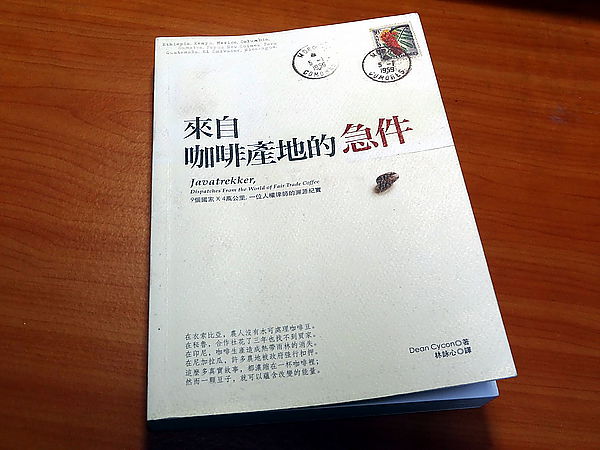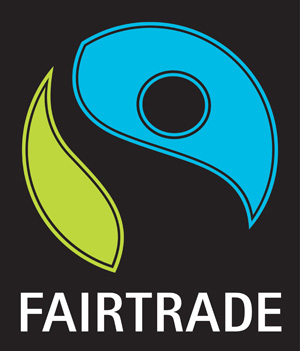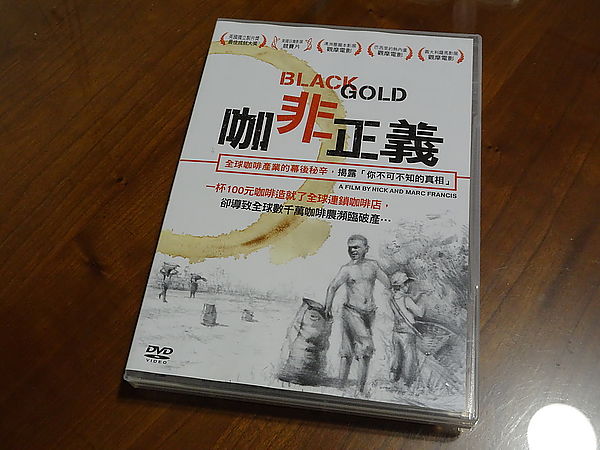"dispatch from coffee producing areas" follows coffee travelers to learn about coffee ecology in third World countries.

Professional coffee knowledge exchange more coffee bean information please follow the coffee workshop (Wechat official account cafe_style)
An introduction to the History of Coffee and Coffee beans & handmade brewing equipment & recommendation of books on espresso & coffee roasting
[dispatch from coffee origin: X40,000 km in 9 countries, a traceability record of a human rights lawyer]
Author: Dean. Saikang
Publisher: Facebook
For developed countries, free trade advocated by the mainstream of economics (a free market that emphasizes economic analysis and efficiency, and governments and groups should not intervene in the market) can increase the overall gross output value in the theory of comparative interests.
However, this mechanism may lead to large organizations or enterprises monopolizing the market, which is more likely to occur in developing third World countries (such as Africa, Central and South America, etc.).
In order to prevent this from happening again and again in these developing countries, international non-profit organizations have formed the International Fair Trade labelling Organization to promote sustainable development in developing countries through the work of cooperative economy and fair trade certification. and raise the awareness of the rights of local vulnerable producers and workers.

Fairtrade
The pattern of the Fairtrade certification logo shows a cheering person (blue represents the sky, green represents the earth, and the black part is an one-handed figure), representing that producers have obtained a fair deal through Fairtrade. At the same time, it also represents that consumers know through Fairtrade goods that they have done a different good thing and helped these producers.
Most of the major coffee producers in the world are in the third world. And small coffee farmers in these countries are generally located in remote areas, living in poverty, unable to resist the price cuts of large disk merchants, once the market is monopolized, it will have a direct impact on their livelihoods, under the exploitation of layers of prices, raw bean prices almost do not meet, or even fall below production costs, making coffee farmers unable to improve their lives and production quality.
After joining Fairtrade, coffee farmers can avoid being exploited by intermediate traders and ensure that farmers get reasonable profits at the same time. Maybe you only pay about a dollar more, but it may be double or even more than twice the profit for them, which is of great help to improve their life and production quality.
Open the book and follow the coffee traveler Dean. After visiting 9 third World countries (Ethiopia, Kenya, Peru, Colombia, Guatemala, Mexico, Nicaragua, Sumatra, New Guinea), you will understand the coffee in your hands, which includes the rights and interests of the vulnerable, environmental pollution, politics and war. At the same time, we will also learn that the good taste in the cup is the result of the blood and tears of countless coffee farmers. After reading this book, you may have different feelings about coffee.
A CD-ROM is attached to the book, in which is Dean. The actual picture of Saikang in the coffee producing area. Through the film, we can have a clearer understanding of the coffee ecology of these third World countries, which we cannot imagine.
Dispatch from coffee origin: X40,000 km in 9 countries, a record of the origin of a human rights lawyer

It is also worth mentioning that the General Manager of the Oromia Coffee Farmers Cooperative Union mentioned in this book in Ethiopia: Tadesse, is also a documentary: the soul of Kafe justice. The documentary has won multi-national documentary awards and is worth seeing.
.
Important Notice :
前街咖啡 FrontStreet Coffee has moved to new addredd:
FrontStreet Coffee Address: 315,Donghua East Road,GuangZhou
Tel:020 38364473
- Prev

"talented people start the course, teach you to make coffee by hand." recommended books on hand-brewing coffee skills
Professional coffee knowledge exchange more coffee bean information please follow coffee workshop (Wechat official account cafe_style) coffee history and coffee beans introduction to manual brewing equipment espresso coffee roasting books recommended to learn this must be a "talent class, teach you to brew coffee by hand" 23 popular coffee shop chefs personally teach the most unique hand-made coffee skills
- Next

The Magic Power of smell books related to the sense of smell Coffee sensory learning reading books recommended
Professional coffee knowledge exchange more coffee bean information please follow coffee workshop (Wechat official account cafe_style) Coffee History and Coffee beans introduction to manual brewing equipment espresso coffee roasting books recommended related to smell-coffee sensory learning to read books-the magical power of smell: arousing emotional desire, the mysterious fifth sensory odor that affects the behavioral response
Related
- Beginners will see the "Coffee pull flower" guide!
- What is the difference between ice blog purified milk and ordinary milk coffee?
- Why is the Philippines the largest producer of crops in Liberia?
- For coffee extraction, should the fine powder be retained?
- How does extracted espresso fill pressed powder? How much strength does it take to press the powder?
- How to make jasmine cold extract coffee? Is the jasmine + latte good?
- Will this little toy really make the coffee taste better? How does Lily Drip affect coffee extraction?
- Will the action of slapping the filter cup also affect coffee extraction?
- What's the difference between powder-to-water ratio and powder-to-liquid ratio?
- What is the Ethiopian local species? What does it have to do with Heirloom native species?

